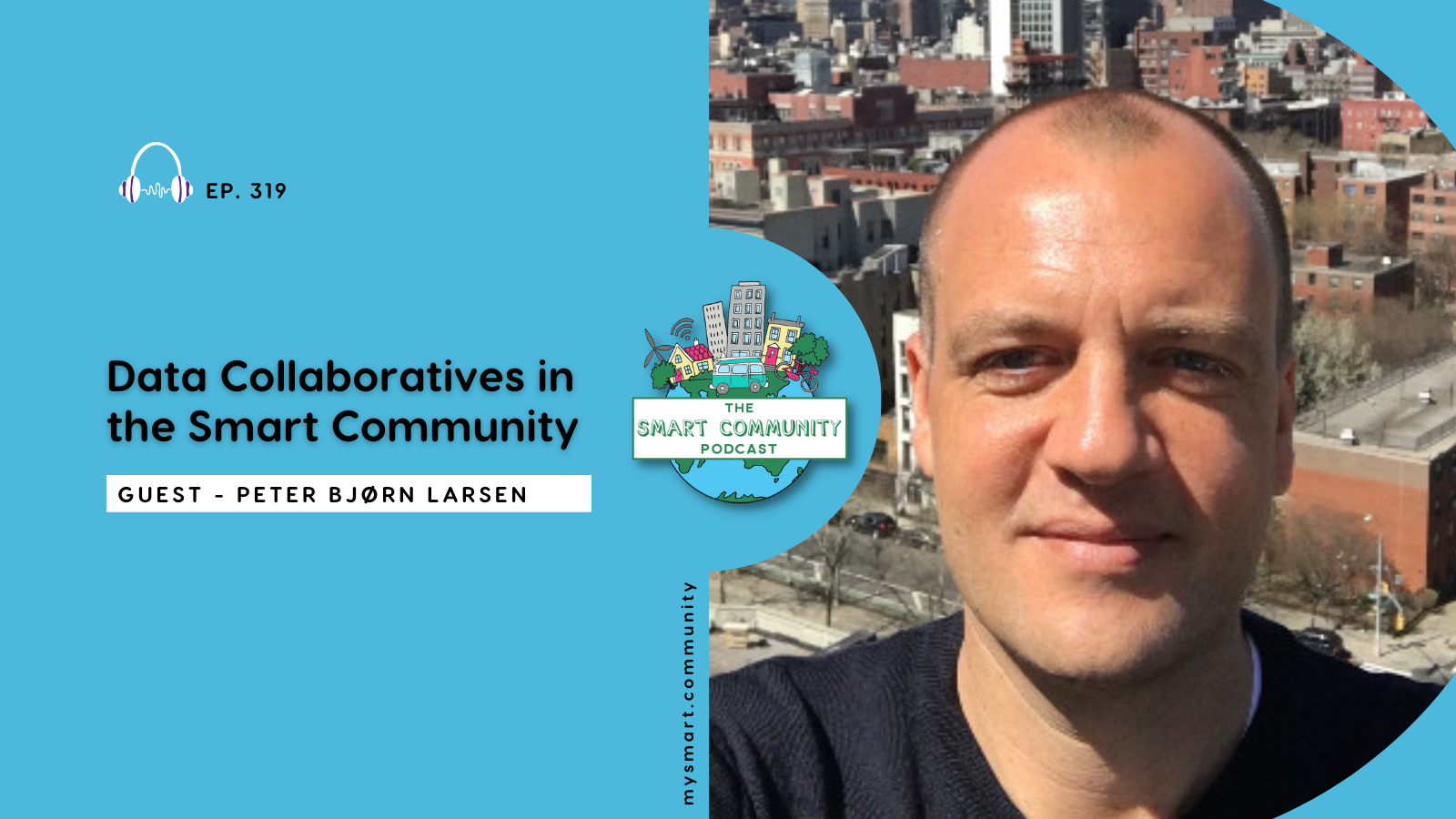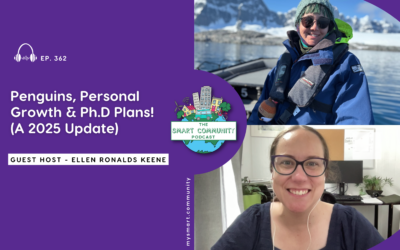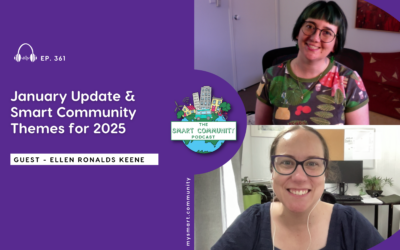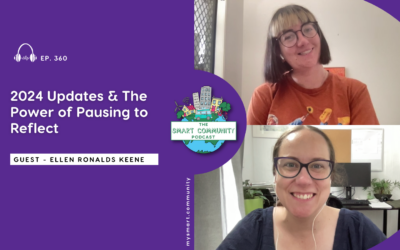Hi #SmartCommunity friends! In this episode of the podcast I have a fantastic conversation with Peter Bjorn Larsen, the founder of Smart City Insights, which is a Smart City advisory consultancy based in Copenhagen, Denmark. Now you may remember Peter from way back in Episode 190. In this episode we discuss some of the projects Peter has worked on, from Copenhagen to Canada to Scotland. Peter tells us about why it’s so important to have both public and private sector working together on Smart Community projects, and how we can create projects with multiple benefits or different benefits for different stakeholders. Peter and I then talk about the concept of data collaboratives, and how they’re different to data marketplaces, plus why we should be using data to solve “normal” problems. We explore the problem of “who will pay for it?” when trying to work collaboratively and break out of silos, and Peter tells us about the real reason we need walkable cities. We finish our chat discussing why Peter tries to never use the word ‘data’ when talking to people about Smart City projects, and how useful Digital Twins will be in the future for helping citizens visualise projects. At the end of our chat we also mention being in Barcelona, I’m heading off to the Barcelona Smart City Expo in November. As always we hope you enjoyed listening to this episode as much as we enjoyed making it.
Listen here:
What we cover in this episode:
- About Peter’s company Smart City Insights and his passion for cities
- What a Smart Community is to Peter
- Why it’s so important to have both the private and the public sector working together on this concept of Smart Cities and Community
- Some of the projects Peter has worked on from Copenhagen to Canada to Scotland
- How we can create projects with multiple benefits or different benefits for different stakeholders
- The biggest challenges Peter has seen over the 13 years he’s been working in the Smart Cities space
- The concept of data collaboratives, and how they’re different to data marketplaces
- Why we should be using data to solve “normal” problems
- The problem of “who will pay for it?” when trying to work collaboratively and break out of silos
- A story from Peter’s recent attendance at a Mobility conference and the real reason we need walkable cities
- The power of language and why Peter tries to never use the word ‘data’ when talking to people about Smart City projects
- How useful Digital Twins will be in the future for helping citizens visualise projects
Quotes:
“We bring to bear together all of these different stakeholders that work with city development: anything from architects, construction companies, and Smart City consultants like myself, and the cities themselves.”
“For me [a Smart Community] is really to have an understanding of the challenges and the problems that might be in a city or, or even in companies, hospitals, and so on. And then understand how can we actually help each other?”
“Cities have become very good at [breaking conversations out of silos]. The issue that remains is the budgets, because you can talk a lot across different departments. But the budgets are still stuck in each department in the city, or the government.”
“We call it death by pilot. So you pilot something and nothing happens. We talked about this for 13 years or even more…Now we have intelligent streetlights. And we have smart this and smart that, but they don’t use it very intelligently. So it’s very expensive. And then the politician says that was a very bad idea, very expensive, and what are we getting out of it?”
“We’re still talking about open data and data marketplaces. And that’s fine, they have a purpose. But I really think if we want to talk about how effectively to work with data in the future, we need these data collaboratives. So back to the Smart Community idea. You need the collaborative, you need to bring the right people together and have a common purpose.”
“I think there’s something in the digital twins that is visualized things. So it’s easy to understand for everyone, because I think many of the other solutions that we talked about from a Smart City perspective have not been very visual. But the digital twin is easy to have a conversation with the local citizens, you can imagine if we did this, this would happen. And then you can comment on that from a citizen perspective.”
Links
Copenhagen City Data Exchange https://datacollaboratives.org/cases/copenhagens-city-data-exchange.html
Connect:
Connect with Peter on LinkedIn
Connect with me via email: hello@mysmart.community
Connect with My Smart Community via LinkedIn or Twitter and watch on YouTube
Podcast Production by Perk Digital






0 Comments